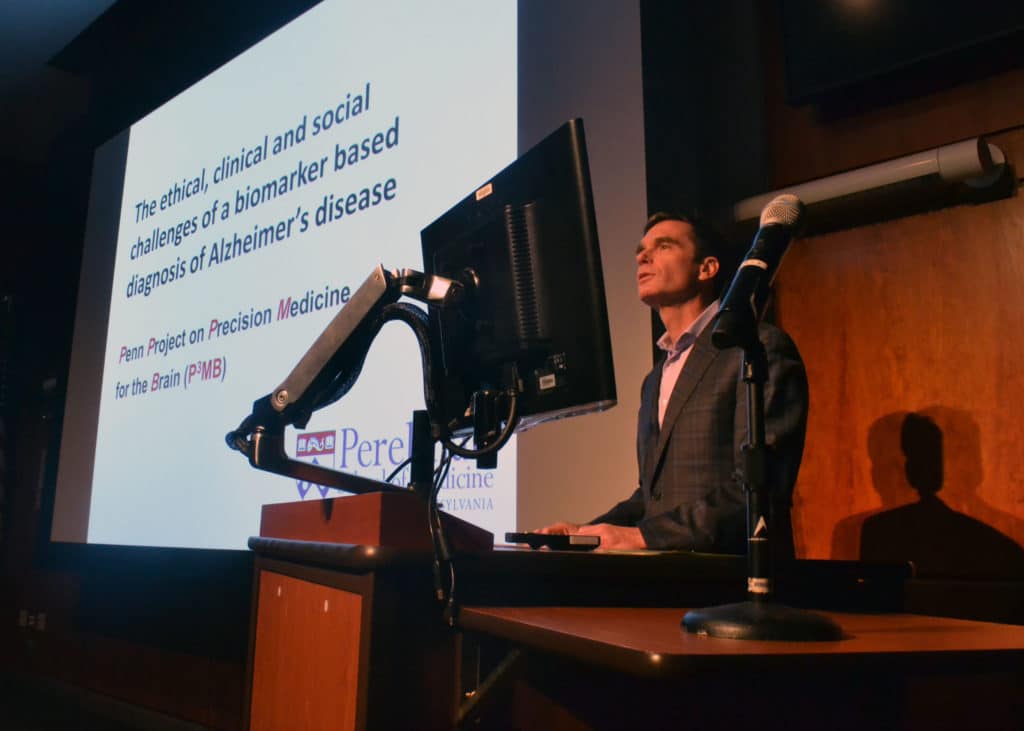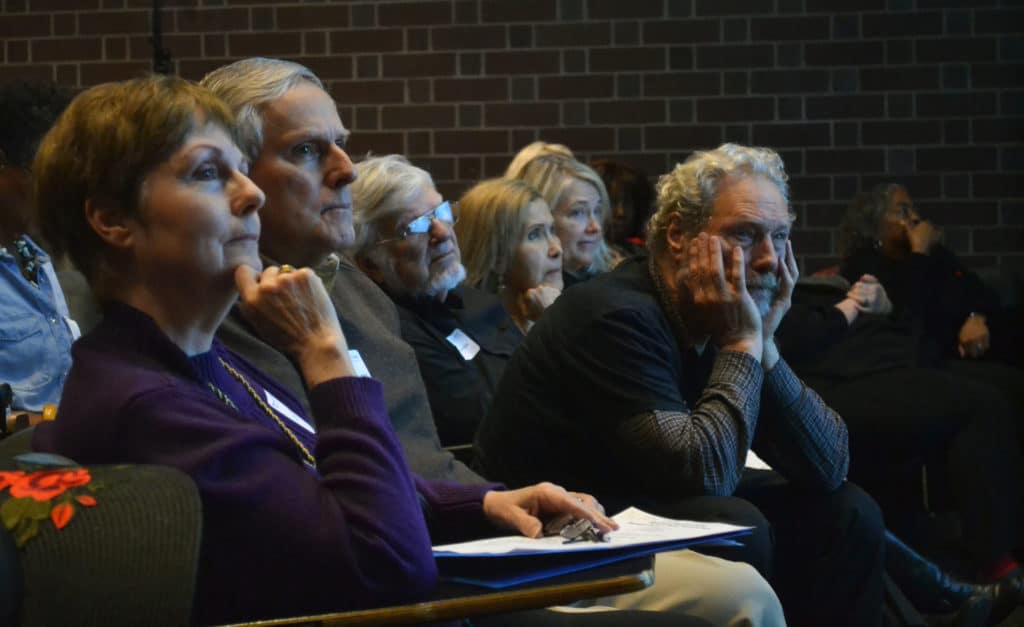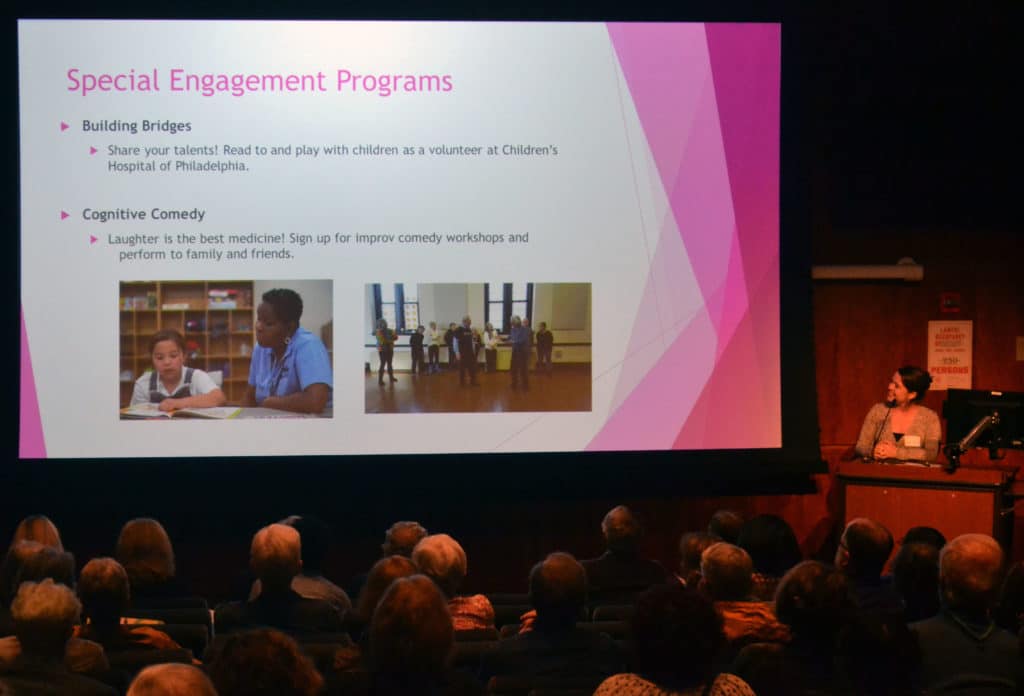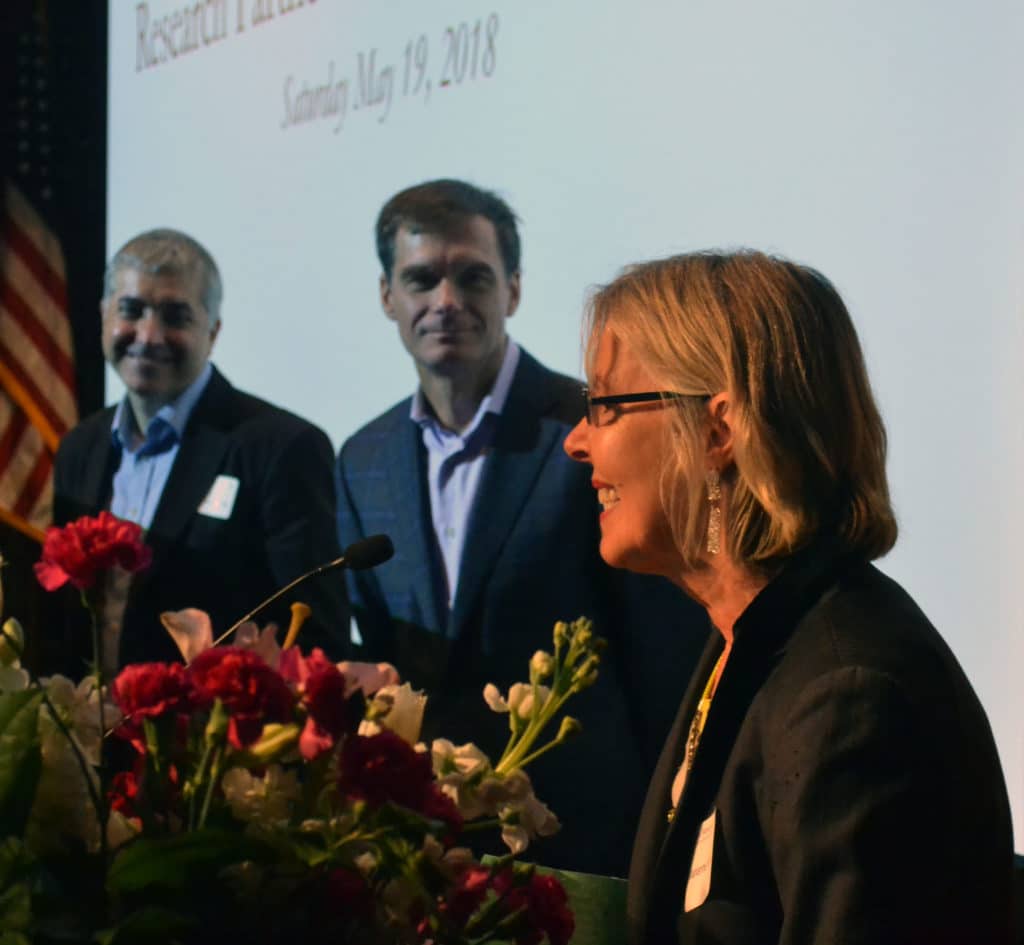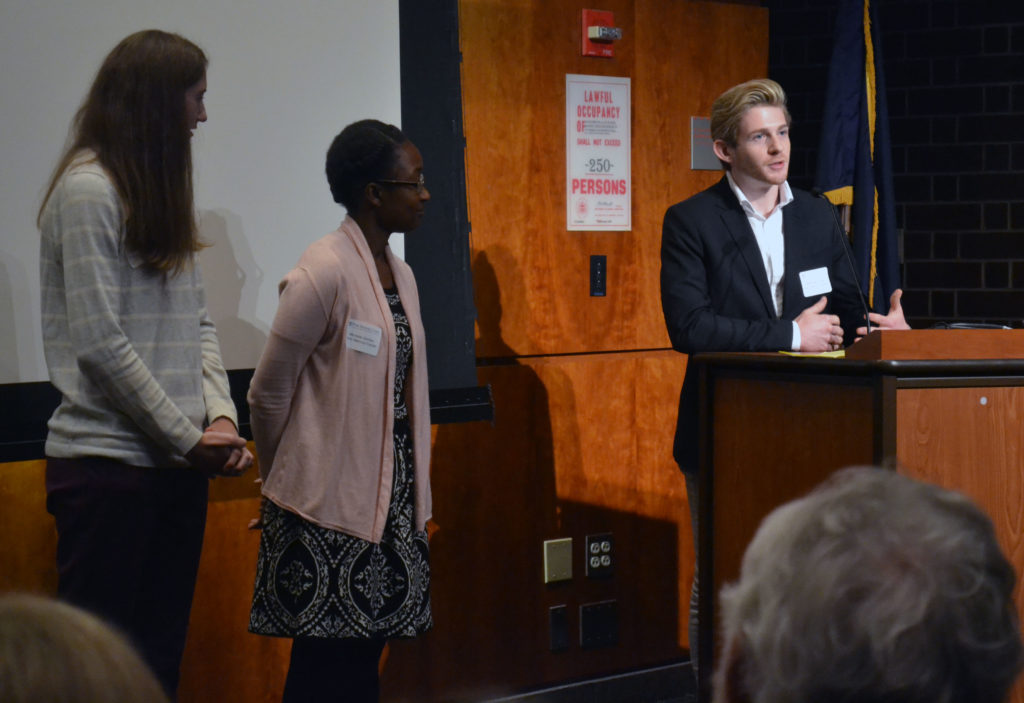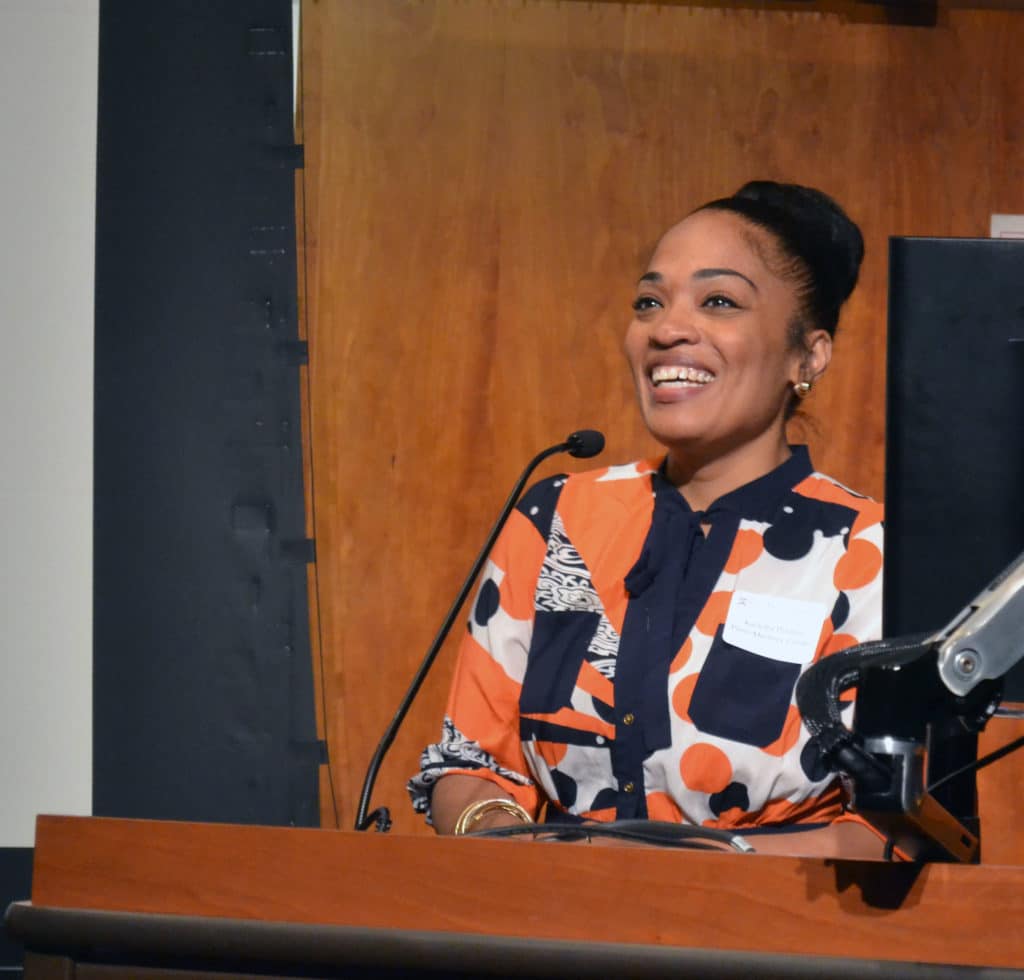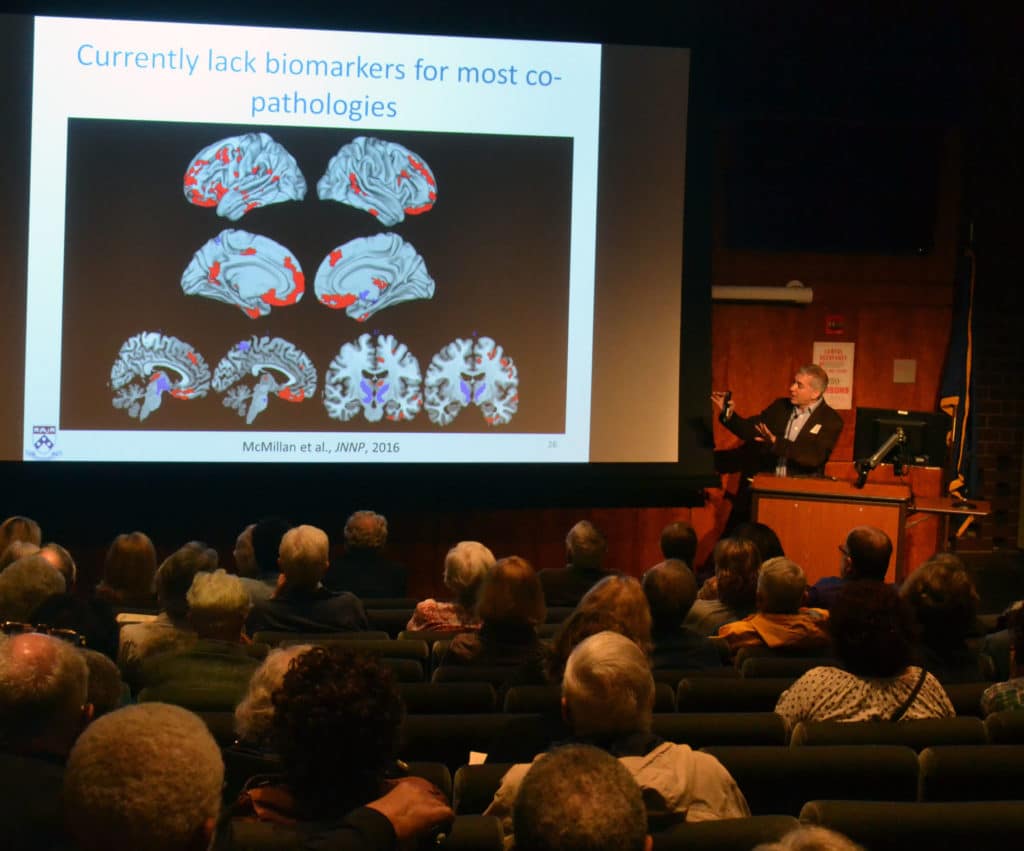
By Kaleah McIlwain
A typical research visit at the Penn Memory Center (PMC) asks quite a bit of research study participants and their study partners.
There’s the travel needed to get to the center, the time spent in the waiting room, and then the series of cognitive tests, blood draws, MRI scans, possible PET scans, and more that participants are asked to undergo.
In response, PMC holds an annual Research Partner Thank You Luncheon (or, in previous years, a breakfast) to show appreciation for research participants and their study partners and to update them on the status of current research studies and programs.
The theme of this year’s luncheon was “Precision Medicine and the Aging Brain,” focusing on the shift in Alzheimer’s disease research towards using biomarkers to determine who has or is at risk of developing the disease.
“Someday you won’t have to be sick, you won’t have to be ill, to be diagnosed with Alzheimer’s disease,” said Dr. Jason Karlawish, PMC co-director. “Signs and symptoms won’t matter.”
Biomarkers are measurable biological indicators of disease. With these, doctors can detect signs of disease in earlier stages than they could by relying on physical signs and symptoms. For example, researchers are currently working with a scan that can detect brain levels of amyloid protein, known to accumulate in the brain as a sign of Alzheimer’s disease. The hope with biomarkers is that earlier diagnoses and risk determination will help clinicians administer drugs earlier and more appropriately. Biomarkers can also help researchers study ways to prevent Alzheimer’s disease before disease progression to an irreversible stage.
So why does PMC ask so much of study participants?
“Thirty percent of the time when we say someone has Alzheimer’s disease, they don’t have Alzheimer’s disease, they have something else,” said Dr. David Wolk, PMC co-director. “We’re really imperfect in making the diagnosis and, well, that’s a problem.”
Dr. Wolk explained how applying precision medicine to Alzheimer’s disease could be essential to improving clinical trials because “we can’t do a one-size fits all approach anymore.”
One new approach taken by the PMC team includes transforming the way we diagnose Alzheimer’s disease to improve quality of life for those aware that they have or are at risk of developing the disease.
Dr. Karlawish recalled a visit from a patient diagnosed with mild cognitive impairment who said, “I feel worse now than I did before I came to see you, because every time that I work in the gift shop I’m afraid I’m going to make mistakes with the change and be called out by my colleagues and lose this volunteer work.”
He presented data from ongoing research showing that people had a negative reaction to a diagnosis of MCI or Alzheimer’s disease — or even a risk of developing the disease — that then affected their quality of life. This often leads to public stigma surrounding the disease and ultimately how short of a cure, there needs to be better ways of thinking about the disease that avoids development of the feelings expressed by his patient with MCI.
Alison Lynn, assistant director of care programs at PMC, reviewed programs and services offered through PMC, including support groups, educational classes, and special engagement programs like Cognitive Comedy. The improv group made up of research participants, patients, caregivers, and loved ones, performed at the start of this year’s luncheon.
“We know that a diagnosis of Alzheimer’s disease and related disorders affects the whole family…physically, logistically, financially, and — most importantly — emotionally,” said Ms. Lynn. “We are committed to helping individuals with cognitive impairment and their family caregivers have the best quality of life possible while they are living with this disease.”
The PMC team and guests celebrated the dedication of senior research nurse Marianne Watson, who will retire in July after more than 25 years at PMC.
PMC leadership also announced a new name for the National Alzheimer’s Coordinating Center (NACC) study: the PMC Aging Brain Cohort (ABC) study. To help improve the research participant experience, a new and larger team for the ABC study were introduced: clinical research coordinators Matthew Ferrara, Michelle Gordon, and Jackie Lane, and Coordinator for Diversity in Research and Education Karletta Poland.
